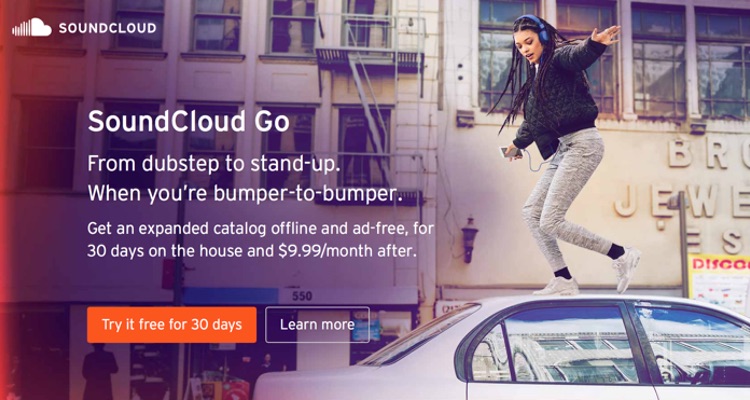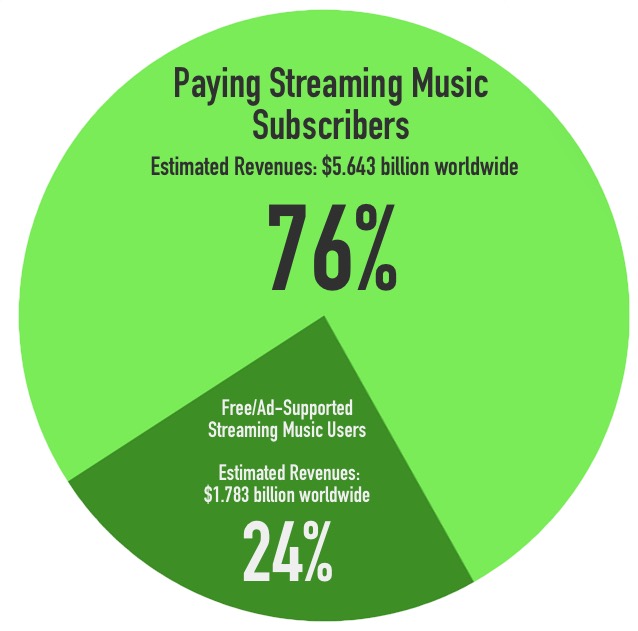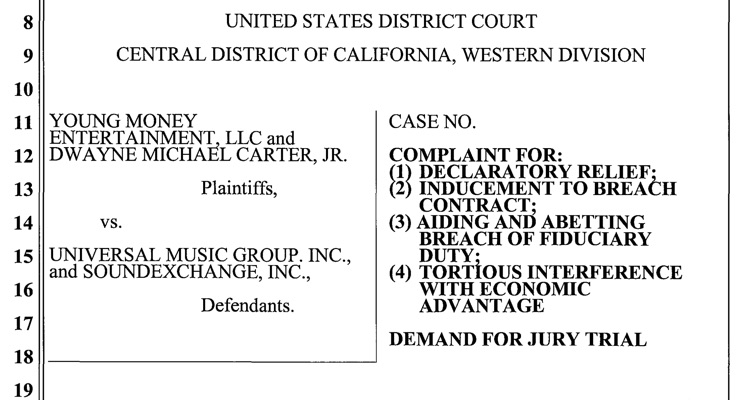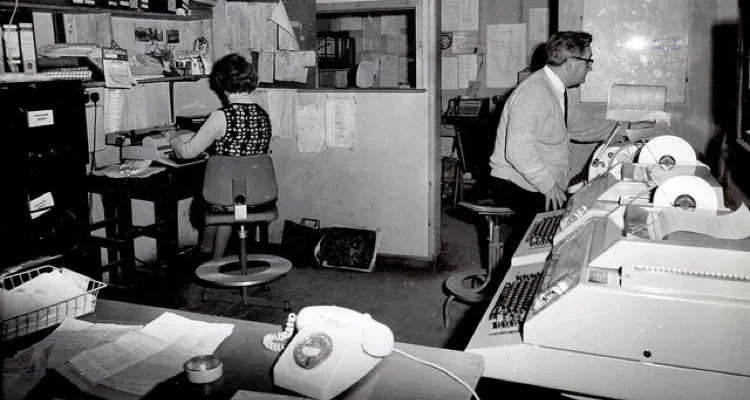Lil Wayne is suing Universal Music and SoundExchange for $40 million in damages over unpaid profits Wayne earned for discovering artists such as Drake and Nicki Minaj. Spin reports, “According to the suit, Universal has withheld Wayne’s share of those profits in order to pay itself back for the debt
Tidal Hits 3 Million Subscribers and Finally Releases Kanye’s Streaming Numbers
Tidal has hit a recorded 3 million subscribers, which doesn’t even include trial users. The news comes a day before Tidal’s one year anniversary.
Of those 3 million subscribers, around half of them are paying $19.99 for the Hi-Fi tier as opposed to $9.99 for the basic tier, at least according to Billboard.
That suggests a premium crowd, and 3 million active paying users is a major milestone for the service. In September of last year, the service celebrated hitting 1 million subscribers, yet 6 months later that figure has tripled. Tidal has also improved its catalog of songs, and now boasts more than 40 million tracks.
+ Which Is the Best Streaming Music Service?
There’s little doubt that streaming exclusives like Kanye West’s The Life of Pablo had a positive impact on subscriber numbers. Indeed, many have presumed that Kanye single-handedly doubled the number of Tidal subscribers. Though the service has some way to go to match giants like Spotify (30 million subscribers) and Apple Music (11 million), Tidal has come a long way from its niche Norwegian roots.
Equally impressive is that Tidal has been growing significantly, despite a head-to-head content with powerhouse Apple Music. Apple entered the streaming market last July, swiping up over 11 million subscribers within approximately 9 months. But Tidal is rallying higher-end audiophiles, not to mention the support of artists themselves.
Aside from the rising subscriber numbers, Tidal has also finally released streaming numbers for Kanye’s The Life of Pablo (earlier, the service withheld streaming numbers from Nielsen Music for unknown reasons). The stats? Tidal said Kanye’s album was streamed over 250 million times in 10 days.
The post Tidal Hits 3 Million Subscribers and Finally Releases Kanye’s Streaming Numbers appeared first on Digital Music News.
LCD Soundsystem, Grimes, Beck Join Glastonbury 2016, Full Lineup Announced
It had already been announced that Coldplay, Adele, and Muse would be headlining Glastonbury 2016. Today, the rest of the lineup was released and includes a host of all-stars. LCD Soundsystem, Grimes, Beck, PJ Harvey, New Order, Jeff Lynne’s ELO, Dolly Parton, M83, James Blake, ZZ Top, Foals,
SoundCloud Go: It Definitely Doesn’t Suck!
Today, SoundCloud rolled out its music subscription service, SoundCloud Go. And it’s actually pretty decent…
The Basics:
- For the first 30 days the service is free, $9.99 a month on Web/Android thereafter and $12.99 a month for iOS.
- Go boasts a huge catalog of songs: approximately 125 million, making it attractive to a wide range of music listeners.
- The platform already has 175 million monthly users who have been using the service for free.
Getting Started:
The app was easy to download via the App Store. I didn’t need to enter any account details as it is already attached to my Apple ID. I simply clicked install and a few moments later I was in the app.
I opted for a 30 day free trial and began searching for music.
On first impression, I noticed the interface of the app looked clean, making it really easy to navigate my way around. I began searching for artists and quickly realized that the library of music was vast.

Catalogue
There is a ton of content on the app, from DJ mixes to chart music from major artists and independent artist alike. Listeners can pick the song they want to listen to as well as upload their own content.
Though, the music is currently not organized in a logical way. If you type in a global artist’s name, a remix or cover by someone else may be one of the top results.
For me, this was a non-issue as I like to discover complete new music and unique versions of songs. But, if you are simply looking to listen to a particular artist, this could be slightly annoying as you would have to scroll through to find exactly what you are looking for.
Although, if you are looking for a particular song and you type in the name of the song and artist, the results that are populated are very accurate.
Sometimes it can be difficult to differentiate what’s paid and what’s free. Songs from the paid subscription service are mixed in with free music, so there’s no way to differentiate between the two unless you have the knowledge of the artist.
Music Discovery
After about 5 minutes of using the app and listening to artists that I typically enjoy, I stumbled across a handful of other artists and songs that I never heard of before.
These songs were by independent up-and-coming artists. The best part is that these tracks were playing directly after massive hit songs by international artists.
This is great music discovery for music listeners like myself and improves the chances of emerging artists getting noticed.
Playlist Creation
It’s really easy to create a playlist on the app. All you need to do is click the ![]() icon in the bottom right-hand corner of the song and then you click ‘add to playlist’.
icon in the bottom right-hand corner of the song and then you click ‘add to playlist’.
The best thing about creating playlists on Go is the fact that you can bundle DJ mixes and original tracks together. There is also the benefit of pre-created playlists by genre.
Stations
Like other subscription services in the streaming market, SoundCloud has Stations. This feature is handy when looking for new music to listen to. You can start it off by selecting a song, and the feature then formulates other songs based on the initial track selected.
Offline Listening
SoundCloud Go makes it easy to listen to music offline. All you need to do is click the ![]() icon and it is saved to listen later.
icon and it is saved to listen later.
Verdict
Overall SoundCloud Go is a great service, although there is room for improvement in terms of the organization of the songs in search results. That being said, it’s still early days, and updates will undoubtedly follow.
Go definitely has the ability to compete with other major music streaming services, like Spotify, Apple Music and Tidal, and with some work this could be a very solid service.
The post SoundCloud Go: It Definitely Doesn’t Suck! appeared first on Digital Music News.
The Difference Between Music Fans That Pay, and Music Fans That Don’t
Exhibit A: Estimated number of paying streaming music subscribers vs. ad-supported free users (Worldwide, 2015).
Exhibit B: Estimated revenues created by paying streaming subscribers vs. ad-supported free users (Worldwide, 2015).
Last week, the Recording Industry Association of America (RIAA) reaffirmed that vinyl records are generating more revenue than free, ad-supported streaming users. But that is less of a reflection on how much money vinyl is making, a more a reflection of just how little money ad-supported music streaming actually generates.
These are just estimates, though despite a free, ad-supported streaming music crowd that accounts for approximately 94% of all music streaming users worldwide, the revenues generated by that mass is just 24% of the on-demand streaming music pie (internet radio isn’t included in this analysis).
Based on a running estimate of approximately 50 million, full-paying streaming music subscribers worldwide (with Spotify now contributing 30 million of those), total revenues land at roughly $5.643 billion.
The Methodology.
Here’s the breakdown on how we built these estimates:
I. Total, paying streaming music users.
In 2014, the International Federation of Phonographic Industries (IFPI) estimated a total of 41 million paying, on-demand streaming subscribers. That likely includes a number of bundled or lower-paying subscribers, though 50 million is now a ‘working average’ based on the following reports from major services:
- Spotify: 30 million paying (reported last week)
- Tidal: 1 million (last reported)
- Apple Music: 11 million (last reported)
- Deezer: approx. 3 million (based on IPO filings)
- Rhapsody: approx. 3.5 million reported (with heavy mobile bundling).
- YouTube Red: unreported (assumed near-zero in early stages)
- SoundCloud: 0 (just launched Tuesday)
Those numbers, coupled with a few others, brings the working total of paying subscribers to roughly 50 million.
II. Revenues from paying subscribers.
In its 2015 report this month, the Recording Industry Association of America (RIAA) estimated revenues of approximately $1.219 billion based on an average paid subscriber base of 10.8 million (averaged over the year). Extrapolate that to 50 million, and the revenue figure moves to $5.643 billion.
III. Estimated free streaming users.
This is a bit tricky, and relies on some liberal assumptions, but:
- YouTube: 1 billion estimated users, with an estimated 40+% of content involving music or music videos (depending on the research report). A loose estimate of the total users accessing music content is about 500 million (or 50%).
- Spotify: estimated 70 million free users (picking apart public statements from Spotify executives)
- Tidal, Apple Music: effectively 0 free users (ignoring trial users)
- SoundCloud: self-reported 175 million active free users (and currently, 0 paid on the consumer side).
The revenues from free streaming users are based on RIAA figures of $385.1 million for 2015, using the same worldwide extrapolation for worldwide premium revenues.
The post The Difference Between Music Fans That Pay, and Music Fans That Don’t appeared first on Digital Music News.
Lil Wayne Sues Universal Music for Tens of Millions In Unpaid Royalties
Yesterday, Lil Wayne filed a lawsuit against Universal Music, claiming that the label owes him tens of millions of dollars in unpaid royalties.
This all started when Lil Wayne’s Young Money label entered an agreement Universal Music’s Cash Money Records in 2003. The aim of that agreement was to discover and nurture new artists into global stars, and expand on the massive impact Wayne enjoyed in the rap and pop worlds. Wayne would find new artists, sign them to YMCMB (the joint venture), and both parties would share the profits.
The deal was simple: Wayne’s Young Money would receive 49% and Universal’s Cash Money would receive 51%. There were many disagreements throughout the term, but they still extended the agreement numerous times. The final agreement expired in June 2015, and has not been renewed.
Which brings us to the next part: Lil Wayne (real name Dwayne Carter) initiated legal proceedings shortly after the agreement expired, claiming Cash Money didn’t stick to the agreement. Wayne claimed that in the signed contract, Cash Money agreed to pay a $10 million advance for each album ($8 million before recording and 2$ on completion), but this never happened.
In fact, Wayne allegedly received just $2 million of the $8 million recording advance for his Tha Carter V album – He didn’t receive anything else despite the album being completed. Wayne also claimed that Cash Money agreed to pay $200,000 a quarter for Young Money’s ‘overhead’ expenses, but also failed to make those payments. As a result, Wayne filed a $51 million lawsuit, which is currently pending in Louisiana federal court.
Now, Wayne is after Cash Money’s parent company: Universal Music Group, the largest recording label in the world.
Wayne’s new lawsuit states that Universal Music has been cashing in on millions of dollars that were earned directly from artists he signed to the label. Artists like Nicki Minaj and Drake top the list, and Wayne is alleging that Universal Music is using the royalties from these artists to repay itself for the $100 million advances to Cash Money Records.
But, it doesn’t stop there, Wayne is also suing SoundExchange, the non-profit royalty collection organization that oversees digital radio royalties.
The post Lil Wayne Sues Universal Music for Tens of Millions In Unpaid Royalties appeared first on Digital Music News.
I’m a Featured Singer In a Recording. What Should I Be Getting Paid?
The following was emailed to Digital Music News this morning from a featured artist trying to figure out his royalties. Can you help this person out?
Hi Paul,
I am a artist and songwriter who just finished reading your article “Now you know everything about publishing” One thing that I find hard to find is how featured artists are paid on songs.
Is there an industry kind of standard that artist refer to? Here is my scenario:
I am featured on a song with a singer who has asked me to do a 16 bar verse, I wrote it and performed it for the final SR. If that song is sold as a download for say $1.00 what would the featured artist royalty rate be?
Do you mind giving me a proper break down of the numbers for a single iTunes record sold?
Here is my idea based on $1.00
- ITunes- 30 cents
- Label/Administrator-70 cents
- Writers- 4.55 cents, divided by 4. (2) Lyric (2) Melody
- Publishers- 4.55 cents, divided by 2. Only 2 publishers involved. Owner 1 =40%, Owner 2 =60%
- Main Artist- 14% of the 70 cents (net) or 14% of the $1.00 (gross)
- Featured Artist- How do you calculate this number?
- Producer-?? Same as melody writers 4%
Now after the digital distributor gets paid its 30% and the money goes to the label, do they pay the artist and producer based on 70 cents or on 60.9 cents which would be left over after the 9.1 cents for publishers and writers have been taken out first? So out of the below scenarios which one is correct so far without determining the featured artist rate, and how do I determine that?
- Digital Distributor= 30cents
- Label=48.3 cents
- Writers/Publishers=9.1 cents
- Main Artist & Producer=12.6 cents
- Featured Artist=?
Or
- Digital Distributor= 30 cents
- Label=49.938
- Writers=9.1
- Main Artist & Producer= 10.962
- Featured Artist= ?
Also, here is how the writers/publishing shares are split
Writers
1) 20% (Lyrics) Main
2) 10% (Lyrics) Featured
3) 10% (Melody)
4) 10% (Melody)
Publishers
1) 20%
2) 0%
3&4) Same publisher 30%
Hope you find time to read this. Would love to get your expertise and feedback.
Thanks!
The post I’m a Featured Singer In a Recording. What Should I Be Getting Paid? appeared first on Digital Music News.
SoundCloud Introduces a Paid, Subscription Tier
So it’s official: SoundCloud has entered the music subscription market in the US.
The following is a developing story. Please check for ongoing updates.
Early this (Tuesday) morning, SoundCloud launched a new subscription service to rival the likes of Spotify and Apple Music. That new service is called SoundCloud Go.
The launch has been highly anticipated for some time, and closely follows licensing tie-ups with major labels Universal Music Group and Sony Music Entertainment. The service includes a free 30-day trial, after which Go will charge $9.99 a month for web and Android, and $12.99 a month for iOS.
The reason for the elevated iOS charge, according to SoundCloud, is the surcharge pinned by the iTunes Store.
Go promises on-demand music, ad-free streaming and off-line playback like competing services. But SoundCloud is hoping that its huge catalog of more than 125 million songs will set it apart from the likes of Spotify, Apple Music and Tidal. Even better is what’s in that catalog: DJ mixes, user-generated content, and lots of unique content that makes this a differentiated, sought-after destination.
Accordingly, SoundCloud has the opportunity to be big in the music subscription market. The site already enjoys a massive following, and unique content is a major reason for that. Then, there’s the flexibility of a two-way platform: on SoundCloud, the user can create more varied playlists, while bundling DJ mixes and original tracks together.
Sounds great, though the $1 billion question is whether Go can effectively convert its 175 million monthly active users into paying customers. That’s an incredibly steep challenge, especially since this is a platform with a long-established reputation of being free. That suggests a small conversion rate, though even a small percentage of 175 million is a lot of paying users.
The post SoundCloud Introduces a Paid, Subscription Tier appeared first on Digital Music News.
$250 Million Lawsuit Against ‘Straight Outta Compton’ Moves Forward…
A US federal judge has now allowed a massive, $250 million defamation lawsuit against the makers of ‘Straight Outta Compton’ to proceed.
The lawsuit, filed by original N.W.A manager Jerry Heller last fall, alleges defamation for wantonly fabricating falsehoods in one of the biggest films of 2015. The complaint, originally lodged on October 30th, 2015 in the Superior Court of California for the County of Los Angeles, contained an amazing 29 different instances of defamation in ‘Straight Outta Compton,’ with damages that could reach an estimated $250 million.
![]() November 2nd, 2015: “29 Reasons Why Jerry Heller Is Suing the Producers of ‘Straight Outta Compton’“
November 2nd, 2015: “29 Reasons Why Jerry Heller Is Suing the Producers of ‘Straight Outta Compton’“
Now, US District Judge Michael W. Fitzgerald has allowed that suit to move forward, despite considerable reservations and a motion by NBCUniversal to dismiss. In his decision, Fitzgerald indicated that Heller would encounter ‘some real trouble’ securing damages, while permitting an amended complaint to shuttle the case forward.
A major issue is that Heller is considered a public figure, a situation that introduces a number of additional protections against defamation under California laws. Additionally, the broad cast of defendants, including NBCUniversal, have argued that the situations surrounding the rise of N.W.A are subject to considerable interpretation. Indeed, Fitzgerald noted that Heller himself has injected himself into the fog of information, partly by authoring a book on the matter.
Issues tied to procedure have also been introduced, with broad, scattershot approach potentially drawing rebuke. The massive defendant list also director F. Gary Gray, a number of different screenwriters, Legendary Pictures, the estate of Eazy E, as well as members of the rap group itself. “The possibility of sanctions hangs over this case… if Heller can’t provide specific allegations to each of the defendants,” Eriq Gardner of the Hollywood Reporter noted.
Then, there are issues related to defamation suits themselves, including the massive costs of creating them. “Defamation lawsuits are a game for kings,” noted music industry attorney Steve Gordon, who also added the old legal adage, “it’s not defamation if it’s true.” Whether Heller’s allegations are true is a matter for a judge (and possibly, jury), though the possibility of receiving $250 million in damages seem slim.
The post $250 Million Lawsuit Against ‘Straight Outta Compton’ Moves Forward… appeared first on Digital Music News.
Executive Shuffle: iHeart Radio, Pandora, VEVO, ASCAP
A list of executive shuffles across the music business…
iHeart Radio has hired radio executive Rob Farina as Senior Advisor, just in time for the launch of iHeart Radio in Canada. Farina most recently worked as Vice President of Content for Rogers Media.
Pandora recently announced Tim Westergren as CEO following Brian McAndrews’ exit from the company (full coverage here). Pandora has also named Jim Feuille as Chairman, Mike Herring as President and Chief Financial Officer, Sara Clemens to Chief Operating Officer, and Chris Phillips to Chief Product Officer.
Elsewhere…
VEVO has internally promoted JP Evangelista to Head of Music and Talent. Evangelista has worked for VEVO since 2009, and first started out as the Manager of Label Relations. Since his first role, Evangelista has performed in various capacities, including Director of Label Relations, Senior Director of Music Programming and Industry Relations, and Vice President of Content and Programming before being promoted to his new role.
The American Society of Composers, Authors and Publishers (ASCAP) has elevated Gabriela Gonzalez as Vice President, Latin. Gonzalez has worked for ASCAP for 16 years as Senior Director, US Latin & Latin America. Gonzalez will continue to be based in Los Angeles and will report to John Titta, ASCAP EVP, Membership. In the new role, Gonzalez will be responsible for overseeing the ASCAP Latin Membership Department.
(Image by Dave Conner, Creative Commons, Attribution 2.0 Generic, cc by 2.0)
The post Executive Shuffle: iHeart Radio, Pandora, VEVO, ASCAP appeared first on Digital Music News.









